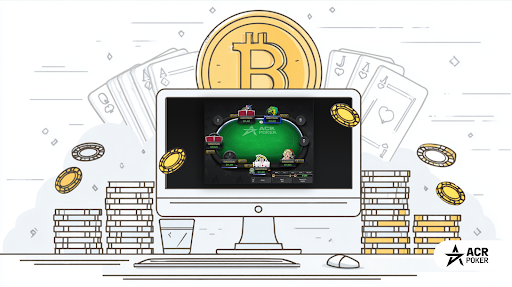The allure of anonymity and cryptocurrency has catalyzed a surge in the popularity of Bitcoin casinos. While some are drawn to these platforms for the privacy they offer, the trade-offs, especially in terms of risk, remain poorly understood by many users. Anyone considering participation in anonymous Bitcoin casinos must be aware of the unique vulnerabilities, the legal ambiguities, and the practical consequences that come with these digital gambling environments.
What Makes Bitcoin Casinos “Anonymous”?
Unlike traditional online casinos—where identity verification, age checks, and banking details are standard—anonymous Bitcoin casinos typically require little more than an email address or even just a crypto wallet. The idea is simple: anonymity attracts users seeking privacy, especially in regions with restrictive gambling laws or heightened surveillance. But this very quality creates a double-edged sword.
Core Features of Anonymous Platforms
- Minimal Onboarding: Often no KYC (Know Your Customer) process.
- Crypto-only Payments: Bitcoin is the dominant medium, occasionally joined by other coins like Ethereum or Litecoin.
- Jurisdiction Evasion: Operations may be based in opaque or overseas locations, outside the reach of robust international regulation.
These elements grant users remarkable privacy—yet simultaneously expose them to wide-ranging dangers.
Legal and Regulatory Gray Areas
One of the primary risks plaguing anonymous Bitcoin casinos concerns legal ambiguity. While gambling laws differ between jurisdictions, most countries attempt to regulate online betting, both for consumer safety and for tax revenue. Anonymous casinos often operate in a legal gray zone or outright illegality.
Key Legal Risks
- Lack of Licensing: Many of these platforms function without licenses from recognized gambling authorities.
- Player Protections: Traditional dispute resolution, consumer complaints, and regulatory oversight are often absent.
- Potential Prosecution: In regions where online gambling is illegal, players themselves could potentially run afoul of the law—even if enforcement is rare.
“Anonymous crypto casinos operate in a murky legal landscape, putting both operators and users at risk. Players have little recourse if defrauded, and operators can disappear without warning,” notes Steven Foster, a gaming regulation analyst.
Security Concerns: Deposits, Withdrawals, and Account Safety
When players use an anonymous Bitcoin casino, they relinquish key consumer protections that are common with established online gambling platforms and fiat payment systems.
Cryptographic Transactions—A Double-Edged Sword
Cryptocurrencies provide transparency on the blockchain, but they are also irreversible, with no mechanism to reclaim funds sent in error or lost to a fraudulent operator.
Common Security Threats
- Theft and Hacking: Anonymous casinos often lack the security budgets and compliance standards enforced by regulated betting sites. Users may be vulnerable to phishing, wallet scams, or simple inside theft.
- Sudden Closures: Because these casinos operate outside established financial norms, there is a tangible risk they may disappear overnight, taking user balances with them.
- No Chargebacks: Unlike debit or credit cards, crypto payments cannot be reversed, exacerbating loss risks.
Case studies abound of users losing substantial sums because a casino shut down abruptly, hid behind unknown operators, or ran a “rug pull” scam.
Fairness, Game Integrity, and Auditing
The concept of “provably fair” gaming—algorithms that allow players to independently verify each result—has become a buzzword in the crypto casino space. However, implementation is wildly inconsistent, and trust in these algorithms remains difficult to verify for non-technical users.
The Problem of Opaque Game Logic
- Unregulated Game Code: Without third-party audits, there’s limited assurance games haven’t been manipulated to disadvantage players.
- No Transparency Guarantees: While some sites publish their code or allow verification, many expect players to trust their systems blindly.
A 2023 examination by gambling technology watchdogs revealed that a significant share of so-called “provably fair” casinos offered checks so opaque that only technical experts could meaningfully interpret them.
Money Laundering and Financial Crime
The privacy inherent in anonymous Bitcoin casinos is attractive not just to regular bettors but also to individuals seeking to launder illicit funds or avoid taxation. The use of pseudonymous wallets, coupled with negligible oversight, has drawn the scrutiny of law enforcement and financial watchdogs.
Risks to Everyday Users
- Collateral Investigation: Players may find themselves caught up in criminal probes if a casino is implicated in money laundering, even if their activity was lawful.
- Asset Freezing: At times, exchanges and wallet providers may flag coins tainted by association, leading to blocked accounts or forfeited funds.
Given the ongoing global crackdown on crypto-related financial crimes, more users are facing unanticipated consequences from associations with dubious platforms.
Responsible Gambling and Player Wellbeing
Without identity verification or enforceable age limits, anonymous Bitcoin casinos contribute to an environment where vulnerable individuals—including underage players—may gamble without barriers. The lack of responsible gambling tools, such as deposit limits or self-exclusion mechanisms, amplifies the risk of harmful behavior going unnoticed.
Societal and Personal Consequences
- Problem Gambling: The ease of anonymous participation can fuel habits that might otherwise be checked by traditional oversight.
- Emotional Distance: The abstraction of both currency (Bitcoin instead of dollars) and the lack of personal accountability foster detachment from financial loss.
Regulated platforms typically provide triggers and support for those at risk, but these are wholly lacking on most anonymous sites.
Transparency: Tracking Operators, Not Just Wallets
Finally, the overarching risk stems from the invisibility of the people behind anonymous casinos. Players are betting their funds and trust on little more than a web interface and an anonymous team who could vanish without a trace.
- No Accountability: Customers have no practical way of knowing who runs the site or whether any complaints will be addressed.
- No Recovery Mechanisms: If fraud occurs, legal and financial redress is virtually impossible.
Beyond this, attempts at community-driven blacklists or review sites are insufficient substitutes for rigorous, independent oversight.
Conclusion: Weighing the High Stakes of Anonymity
Diving into an anonymous Bitcoin casino might look appealing for its privacy and speed, but such advantages are often overshadowed by the profound risks—legal, financial, and personal. The lack of regulation, consumer guarantees, and transparency renders users vulnerable to losses, both expected and unforeseen.
Anyone tempted by these platforms should conduct rigorous due diligence, understand their local laws, and recognize that true anonymity comes at a cost few casual gamblers understand. For peace of mind and safekeeping of funds, reputable, licensed operators with robust verification and responsible gaming frameworks are vastly preferable.
FAQs
Are anonymous Bitcoin casinos legal everywhere?
No, the legality of anonymous Bitcoin casinos depends on local gambling laws and regulations. In some countries, all forms of online gambling are illegal, while others require licenses or prohibit crypto betting.
What risks do I face when using a casino that doesn’t require ID?
You risk losing your deposits to scams or unlicensed operators and have limited or no legal recourse if things go wrong. Additionally, your funds may be more susceptible to hacking or theft due to weaker security standards.
How can I check if a crypto casino is trustworthy?
Look for independent reviews, transparent license information, and verifiable “provably fair” systems. However, even these signals are not foolproof for anonymous platforms.
What happens if a casino closes overnight?
If the operator vanishes, there are typically no avenues for players to retrieve lost funds or file complaints. Anonymity makes it nearly impossible to hold anyone accountable.
Is it safer to play at regulated crypto casinos?
Yes, licensed crypto casinos must comply with industry standards, provide dispute mechanisms, and often require identity verification, making them significantly safer for users.
Can playing at an anonymous Bitcoin casino get me in legal trouble?
If local laws prohibit online gambling or crypto gaming, you could face legal consequences. Even if rarely enforced, participating in such platforms carries legal and financial risk.











Leave a comment